
SOME 2,000 YEARS AGO, Maya leaders in the city of San Bartolo entered a temple chamber with vibrant murals depicting supernatural beings and mythical humans painted on its walls. Then they destroyed them.
Although the murals—painted exclusively with black, red, yellow, and white pigments—had been executed by three master artists, some cycle of time known only to the city’s priests had ended, and so too had the murals’ life span. The artwork had probably been commissioned by the city’s rulers and had been on display for 50 to 100 years, but the time had come to build a new temple over the old one. This renovation meant tearing down part of the mural chamber, which was located at the base of the temple, known today as the Pyramid of Paintings.
Many of the figures painted on the chamber’s south and east walls were broken by hammer blows, and the plaster fragments containing their faces were removed. The walls were then knocked down. The chamber, which was just above ground level and opened onto a public plaza, was sealed off by a new wall. Builders faced the entire pyramid in a new layer of stone, and a new structure was built. Most of the chamber, which had been created during the sixth such renovation of the pyramid, was left relatively intact. But its remaining murals were hidden from view until 2001, when University of Boston archaeologist William Saturno discovered the chamber during a survey in Guatemala’s Petén rain forest. Until then, the site had been known only to the local Maya community.
This story is from the {{IssueName}} edition of {{MagazineName}}.
Start your 7-day Magzter GOLD free trial to access thousands of curated premium stories, and 9,000+ magazines and newspapers.
Already a subscriber ? Sign In
This story is from the {{IssueName}} edition of {{MagazineName}}.
Start your 7-day Magzter GOLD free trial to access thousands of curated premium stories, and 9,000+ magazines and newspapers.
Already a subscriber? Sign In
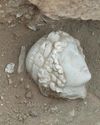
Digs & Discoveries - A Friend For Hercules - Archaeologists discovered a finely carved head depicting Apollo, god of the sun, music, and poetry.
While digging at the crossroads of the two main streets in the ancient city of Philippi in northern Greece, archaeologists discovered a finely carved head depicting Apollo, god of the sun, music, and poetry.
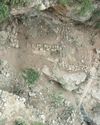
Digs & Discoveries - A Fortress Sanctuary - A sprawling 2,000-year-old fortress in the Zagros Mountains of Iraqi Kurdistan appears to have included a sanctuary dedicated to the ancient Persian water goddess Anahita.
A sprawling 2,000-year-old fortress in the Zagros Mountains of Iraqi Kurdistan appears to have included a sanctuary dedicated to the ancient Persian water goddess Anahita.
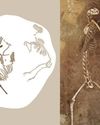
Like Cats And Dogs – Archeologist fund the skeleton of a male Eurasian lynx (Lynx lynx), a notoriously shy creature.
Оn the periphery of Zamárdi, an ancient lakeshore settlement in west-central Hungary, archaeologists uncovered a nearly five-foot-deep beehive-shaped pit with the skeletons of four adult dogs buried in successive shallow layers.
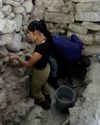
A Dynasty Born In Fire- How an upstart Maya king forged a new social order amid chaos
At the beginning of the Terminal Classic period (ca. A.D. 810-1000), many of the great kingdoms of the southern Maya lowlands-among them Tikal, Palenque, and Calakmul-were being abandoned or collapsing. For many years, scholars have assumed that most, if not all, the other kingdoms across the Maya world must have also been in steep decline.
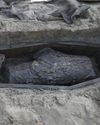
Medical Malfeasance - Archaeologists uncovered two coffins during excavations of a nineteenth-century cemetery in Quebec City that provide evidence of the illicit practice of diverting corpses for the study of human anatomy.
Archaeologists uncovered two coffins during excavations of a nineteenth-century cemetery in Quebec City that provide evidence of the illicit practice of diverting corpses for the study of human anatomy. Starting in 1847, medical students were required to have practical experience studying human anatomy, but legal options to procure cadavers were limited
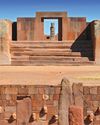
RISE AND FALL OF TIWANAKU
New dating techniques are unraveling the mystery of a sacred Andean city
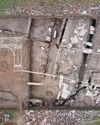
Making a Roman Emperor
A newly discovered monumental arch in Serbia reveals a family's rise to power in the late second century A.D.
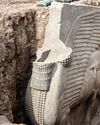
The Assyrian Renaissance
Archaeologists return to Nineveh in northern Iraq, one of the ancient world's grandest imperial capitals
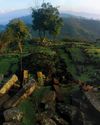
Java's Megalithic Mountain
Across the Indonesian archipelago, people raised immense stones to honor their ancestors
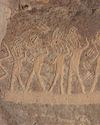
THE SONG IN THE STONE
Located in a desert gorge in southern Peru, Toro Muerto is one of the richest rock art sites in South America. It includes at least 2,600 boulders bearing petroglyphs, many featuring figures known as danzantes who appear to be dancing.